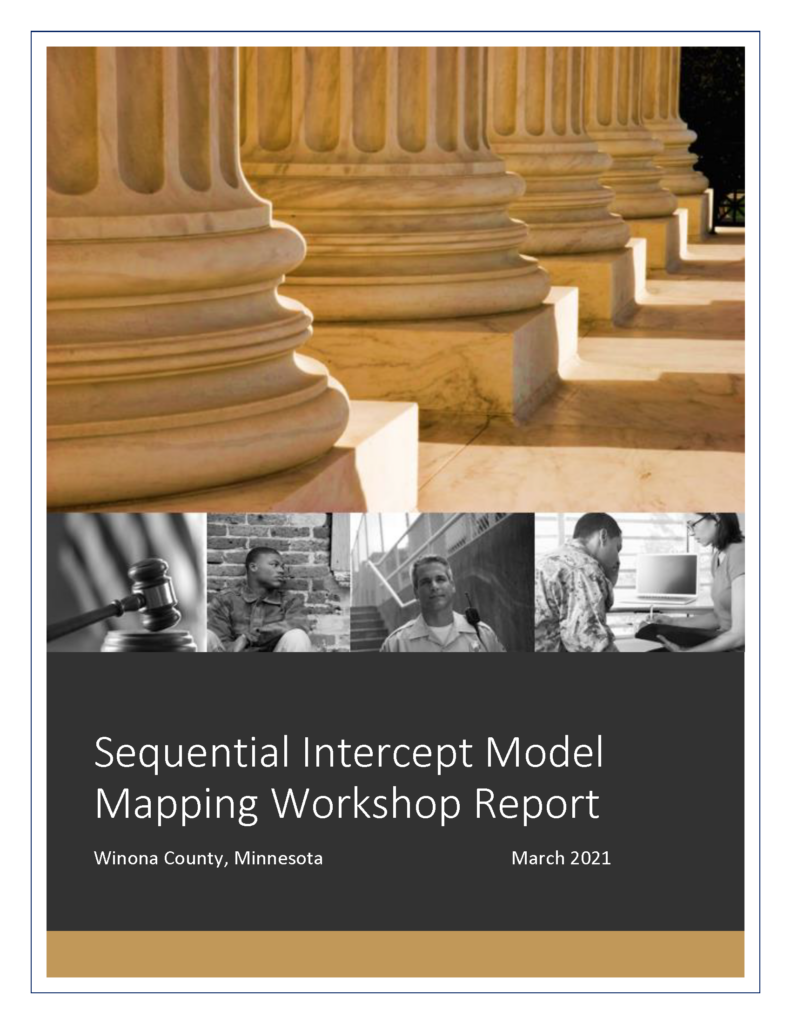Sequential Intercept Mapping
The Sequential Intercept Model (SIM) was developed over several years in the early 2000s by Mark Munetz, MD, and Patricia A. Griffin, PhD, along with Henry J., PhD, of Policy Research Associates, Inc. (PRA). The SIM was developed as a conceptual model to inform community-based responses to the involvement of people with mental and substance use disorders in the criminal justice system.
With funding from the National Institute of Mental Health, PRA developed the linear version of the SIM (shown below) as an applied strategic planning tool to improve cross-system collaborations to reduce involvement in the justice system by people with mental and substance use disorders. Through this grant, PRA, working with Dr. Griffin and others, produced an interactive, facilitated workshop based on the linear version of the SIM to assist cities and counties in determining how people with mental and substance use disorders flow from the community into the criminal justice system and eventually return to the community.
During the mapping process, the community stakeholders are introduced to evidence-based practices and emerging best practices from around the country. The culmination of the mapping process is the creation of a local strategic plan based on the gaps, resources, and priorities identified by community stakeholders.
Sequential Intercept Model
Showing the five intercept points of the criminal justice system at which people can be "intercepted" and thereby preventing further involvement in the system.

Winona County's Sequential Intercept Mapping
The Stepping Up Workgroup of the CJCC completed a Sequential Intercept Model (SIM) Map in 2016 as part of its Stepping Up Initiative. In 2020, Winona County applied for and was selected to receive technical assistance from the SAMHSA’s GAINS Center to update its SIM Map. In March of 2021, experts from SAMHSA assisted 60+ volunteers from the Winona community to map how individuals with mental and substance use disorders in Winona County come into contact with and move through the criminal justice system. Gaps and areas for improvement were identified through this process. Starting in November of 2021, several workgroups were formed to address those gaps and areas for improvement.

